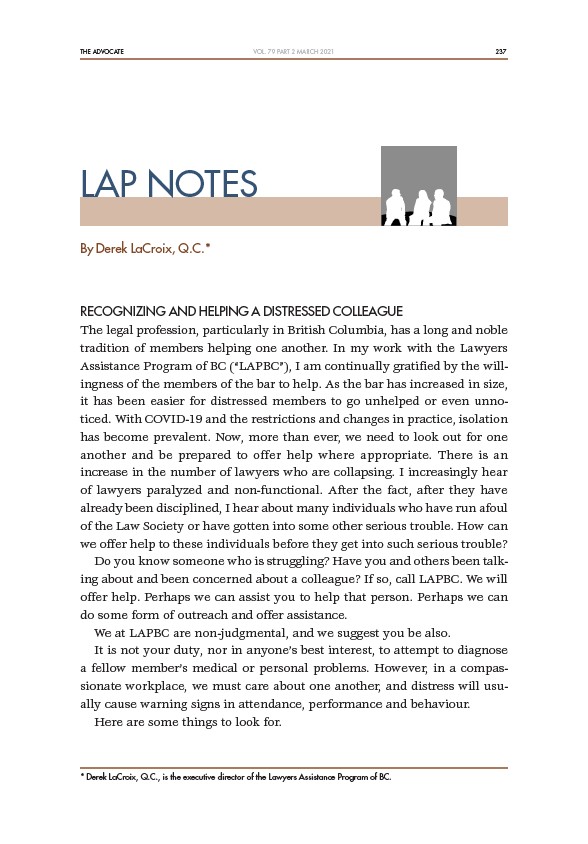
THE ADVOCATE 237
VOL. 79 PART 2 MARCH 2021
LAP NOTES
By Derek LaCroix, Q.C.*
RECOGNIZING AND HELPING A DISTRESSED COLLEAGUE
The legal profession, particularly in British Columbia, has a long and noble
tradition of members helping one another. In my work with the Lawyers
Assistance Program of BC (“LAPBC”), I am continually gratified by the willingness
of the members of the bar to help. As the bar has increased in size,
it has been easier for distressed members to go unhelped or even unnoticed.
With COVID-19 and the restrictions and changes in practice, isolation
has become prevalent. Now, more than ever, we need to look out for one
another and be prepared to offer help where appropriate. There is an
increase in the number of lawyers who are collapsing. I increasingly hear
of lawyers paralyzed and non-functional. After the fact, after they have
already been disciplined, I hear about many individuals who have run afoul
of the Law Society or have gotten into some other serious trouble. How can
we offer help to these individuals before they get into such serious trouble?
Do you know someone who is struggling? Have you and others been talking
about and been concerned about a colleague? If so, call LAPBC. We will
offer help. Perhaps we can assist you to help that person. Perhaps we can
do some form of outreach and offer assistance.
We at LAPBC are non-judgmental, and we suggest you be also.
It is not your duty, nor in anyone’s best interest, to attempt to diagnose
a fellow member’s medical or personal problems. However, in a compassionate
workplace, we must care about one another, and distress will usually
cause warning signs in attendance, performance and behaviour.
Here are some things to look for.
* Derek LaCroix, Q.C., is the executive director of the Lawyers Assistance Program of BC.